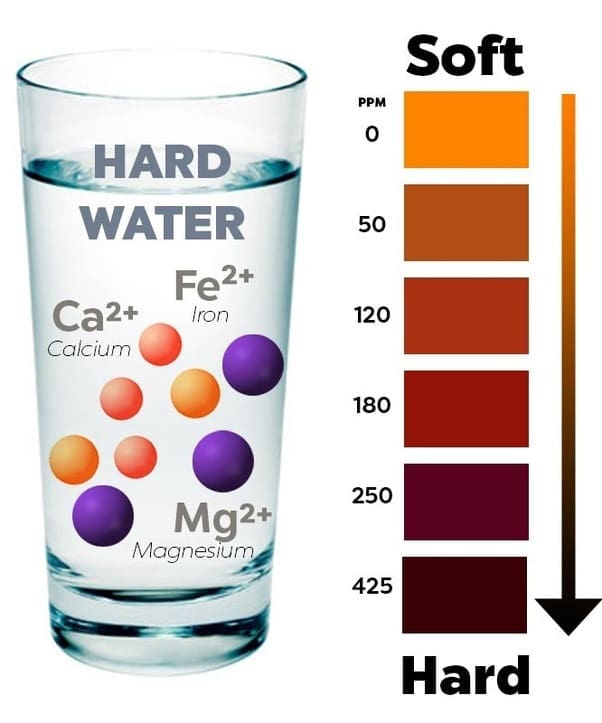
Table of Contents
Hard water is one of the most common problems for homeowners living in areas where there are high concentrations of dissolved minerals. These minerals tend to become visible once the water evaporates, leaving huge stains around your appliances and cookware. Although these stains might sound like a minor inconvenience for you, it can leave a devastating impact on your home if left untreated.
Constant mineral deposits on water-dependent appliances such as your washing machine, hot water heater, and dishwasher will slowly get clogged and start to fail. The water pipes surrounding your house will also choke from this and eventually get clogged. It’s necessary to prevent these from happening so you won’t have to pay for the expensive maintenance and repairs from your clogged pipes and appliances.
To help you with this, we’re going to show you some of the most effective methods for treating hard water.
Simple Short Term Treatments to Achieve Soft Water
First, we’ll show you a few quick short term solutions for addressing your hard water problems. These are cheap and easy methods that can take care or lower the amount of mineral buildup on your appliances and plumbing system.
Using Vinegar
Most of the minerals that are in hard water are calcium, which can be easily dealt with by using acidic substances like vinegar. You can use this to remove any small or medium-sized items in your house that has already built-up a considerable amount of sediments on it.
All you need to do is to place any of those items in a bowl and fill it with hot all-natural vinegar. You can just leave it there for over an hour and then proceed to wipe any remaining scale buildup off using a cloth or paper towel.
A good tip is to use distilled vinegar so you can also kill and mold and bacteria that are growing around your cooking ware.
Lower Water Temperature
If you haven’t noticed, the sediments in hard water tend to buildup faster in hot water compared to cold water. The reason for this is that minerals start to precipitate on the hottest areas on your plumbing system.
To lower the buildup of sediments that accumulate in your water heater, it’s a good idea to lower the water temperature as much as possible.
Hard water is also one of the major contributors of sediment and mineral buildup on a heating tank. Regularly cleaning your water heater prevents the minerals from building up too much, so it doesn’t restrict water flow.
Using Rinse Aid
If your home is running on hard water then you’ve probably noticed that it’s harder for soap to start foaming. The reason for this is that the calcium contained in hard water is filled with positive charge atoms, which can then bond with soap (filled with negatively charged atoms). With this chemical reaction, it makes it impossible for your regular dishwashing soap to remove any sediments that start sticking on your dishes.
To remedy this, you need to use another type of dishwashing liquid specifically made to remove stains from hard water.
Rinse aid is a product created to resist the positively charged particles of calcium atoms. With this, it makes it easy to remove the built-up sediments on your dishes, cookware, and other appliances.
Installing a Water Softener
Using a water softener is the best long term solution for dealing with water hardness. It works by filtering out the sediments that contain in hard water through a tank. Through this process, the water now has little to no particles and minerals inside it, meaning it’s now converted into soft water.
We usually place water softeners to a part of your house that the water enters. With this, it’s able to protect your plumbing system, appliances, and dishes from being accumulated with sediments.
There are different types of water softeners currently available, with each of them having their advantages. Here we’re showing you two of the most used water heaters by homeowners that are currently available.
Ion-Exchange Water Softeners
The ion-exchange water softener is the most commonly used water softener, which works by filtering hard water through resin beads inside a tank. Water goes through these resin beads, which contain negatively charged ions so that the minerals will stick to these beads. The mineral ions are exchanged for sodium ions. It prevents them from going into your piping system, keeping them clean and running only with soft water.
The only issue about this salt based water softeners is that you have to regularly maintain it as the beads have maximum capacity on the number of mineral ions it’s able to hold. It means you need to flush and clean the tank at a certain point to make it work properly.
Salt-Free Water Conditioner
Compared to the Ion-exchange system, the Salt-free water conditioner is a bit simpler. It doesn’t require you to do the regular maintenance of changing, getting heavy salt bags, and flushing the entire system every month.
This system works by altering the structure of the minerals contained on the hard water, which prevents any buildup of minerals and sediments on your pipes and appliances.
Through this method, it prevents your water from being demineralized. It’s also an environmentally friendly alternative as you won’t have to dump large amounts of salt to your water system from maintaining it.
Conclusion
It’s best to invest in a water softener if you’re currently living in an area with mineral-rich water. This long term solution prevents you from doing a lot of unnecessary maintenance on your piping system and appliances.
It’s still important to remove any sediments that accumulate on your appliances as early as possible to prevent them from clumping up and clogging your water system.
Although minerals are good for human health, having too much of them can affect our body the wrong way. Too much of something can become dangerous in the long run. For that reason, we need to maintain optimal levels of these minerals in our food and drinking water.
Hopefully, you’ve found these treatments to be helpful for you as these methods are already proven and tested, so you don’t have to worry about their effectiveness.
An easier option for this dilemma would still be investing in a whole house water filter. It gives great results and can last you a long time. See more here https://aquaoxwaterfilters.com/product/aquaox/.






